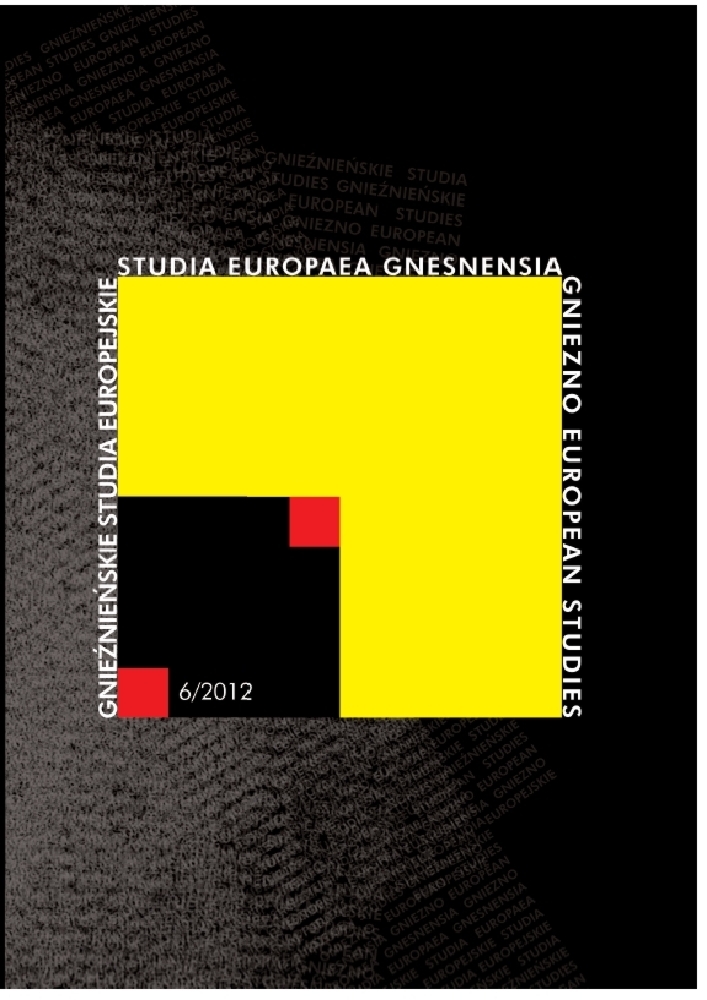Résumé
The Grand Tour of Stanisław Antoni Poniatowski has so far been an integral element in all biographies devoted to the last king of thePolish-LithuanianCommonwealth. However, without no attention has been paid to the visit of the young Polish nobleman in the salon of the famed Madame Geoffrin, the best known French friend and confidante of the king. The well-known memoirs of the ruler and the relatively unknown correspondence between young Poniatowski and a friend, August Sułkowski, which has survived until today in the collection of the Library of Dukes Czartoryski in Cracow, offers an insight into the impressions and reflections that the future king had during the period of his youth spent in Paris.
The travel acrossWestern Europe, which was the custom among young noblemen, had also been a part of Poniatowski’s experience. His parents sent him on his bachelor tour to the neighbouring German countries, and then on to theNetherlands,Franceand eventuallyEngland. The observations made by the young Poniatowski during that time exerted a substanstial impact on the future king’s view of the world. In particular, comparing the affluent and prosperous Western states with the deteriorated and backward Commonwealth left a mark to which the memoirs bear a testimony even today. The rich and well-developed commerce ofAmsterdamor the imposing political culture of the Brits made a gerat impression on the young traveller. Nevertheless, it was the sejour inFrance, under the roof of a former friend of castellan Poniatowski, that proved most influential with regard to his tastes and interests. The acquaintance with the renown Madame Geoffrin, who hosted a greatly successful literary salon in the street of Saint-Honoré inParisenabled the young Pole to enter the world of French elites and learn about the mechanism which governed the French literary republic. In his correspondence with August Sułkowski, Poniatowski would describe his first impressions from the French capital, his first successes and failures as well as general remarks on the life of the French elite or the court in Versailles. His stay had also registered positively in the memories of the people he met, who remembered him in a most favourable manner.
TheParisperiod in the life of Stanisław August gave him the lasting friendship with Madame Geoffrin, who remained king’s confidante until her death in 1777.
Références
Badinter E., Six lettres inédites de Madame Geoff rin a Martin Folkes, 33, Paris 2001. DOI: https://doi.org/10.3406/dhs.2001.2419
Butterwick R., Poland’s last king and english culture, New York 1998.
Butterwick R., Stanisław August a kultura angielska, Warszawa 2000.
Dumanowski J., M. Figeac (ed.), Noblesse française et noblesse polonaise. Mémoire, identité, culture XVIe–XXe siecles, Pessac 2006.
Fabre J., Stanislas-Auguste Poniatowski et l’Europe des Lumieres. Etude de cosmopolitisme, Strasbourg 1985 (la premiere édition : Paris 1952).
Fabre J., Stanislas-Auguste Poniatowski et l’Europe des Lumieres. Etude de cosmopolitisme, Strasbourg 1985.
Fiszer P., Madame Geoffrin, ambassadrice de la tolérance [w:] De l’éventail a la plume. Mélanges offerts a Roger Marchal, Nancy 2007.
Forycki M., Stanisław Leszczyński. Sarmata i Europejczyk (1677–1766), Poznań 2006.
Fumaroli M., Quand l’Europe parlait français, Paris 2001.
Gaber S., Polacy na dworze Stanisława Leszczyńskiego w Lunéville w latach 1737–1766, Częstochowa 1998.
Gawerski A., Stanisław August Poniatowski w Paryżu, [w:] A. Mączak (ed.), Francja — Polska XVIII–XIX w. Studia z dziejów kultury i polityki — Pologne XVIIIe–XIXe siecles. Les études culturelles et politiques consacrées au Monsieur le Professeur Andrzej Zahorski dans le soixantieme annivairsaire], Warszawa 1983, p. 52.
Glotz M., M. Maire, Salons du XVIIIe siecle, Paris 1999.
Heyden-Rynsch V. von der, Salons européens: les beaux moments d’une culture feminine disparue, Paris 1993.
Le secret du roi. La correspondance secrete de Louis XV avec ses agents diplomatiques 1752–1774, Paris 1878.
Lenderova M., Correspondance de Mme Geoffrin et de Wenzel Anton Kaunitz, 30, Paris 1998. DOI: https://doi.org/10.3406/dhs.1998.2243
Lilti A., Le monde des salons. Sociabilité et mondanité a Paris au XVIIIe siecle, Paris 2005.
Mackiewicz S., Stanisław August, Warszawa 1991.
Madame Geoffrin a Marmontel, le 30 juin 1766, [w:] Eloges de Madame Geoff rin, contemporaine de Madame du Deffand, par M. Morellet, Thomas et D’Alembert; Suivi des lettres de Madame Geoffrin et a Madame Geoffrin et d’un essai sur la conversation etc.etc. Par M. Morellet, Paris 1812, p. 66.
Mańkowski T., Mecenat artystyczny Stanisława Augusta, Warszawa 1976.
Martin M., Une Française a Varsovie en 1766. Madame Geoffrin chez le roi de Pologne Stanislas-Auguste, Paris, 1936.
Mémoires du roi Stanislas-Auguste, St-Pétersbourg 1914, I.
Meyniel J., L’univers salonnier de Madame Geoffrin (1741–1777), Fontaine 2008.
Michalski J., [w:] T. Kostkiewiczowa (ed.), Wiek Oświecenia, W dwusetną rocznicę śmierci Stanisława Augusta, Warszawa 1999, 15, p. 325–341.
Michalski J., Stanisław August Poniatowski, Warszawa 2009
Nieć J., Młodość ostatniego elekta, Kraków, 1935.
Rostworowski E., Ostatni król Rzeczypospolitej. Geneza i upadek Konstytucji 3 Maja, Warszawa 1966.
Rostworowski E., Wolter a Polska, Kwartalnik Historyczny LXXV, 4, Warszawa 1968.
Serwański M., Historia powszechna. Wiek XVI–XVIII, Poznań 2001, p. 239–242.
Stanislas-Auguste Poniatowski était-il un francophile?, [w:] M. Forycki, M. Serwański (ed.), Amis et ennemis héréditaires: Les stéreotypes nationaux. Actes du XIIe Colloque Poznań–Strasbourg des 3–4 octobre 2002, Poznań 2006.
Stryienski C., La mere des trois derniers Bourbons. Marie-Josephe de Saxe et la cour de Louis XV, Paris 1902.
Tornezy A., Un bureau d’esprit au XVIIIe siecle. Le salon de Madame Geoffrin, Paris 1895.
Voltaire, Histoire de Charles XII, roi de Suede, Paris 1824.
Zamoyski A., Ostatni król Polski, Warszawa 1994).
Zienkowska K., Stanisław August Poniatowski, Wrocław 1998.
Licence
Copyright © 2012 by IKE and PTPN
